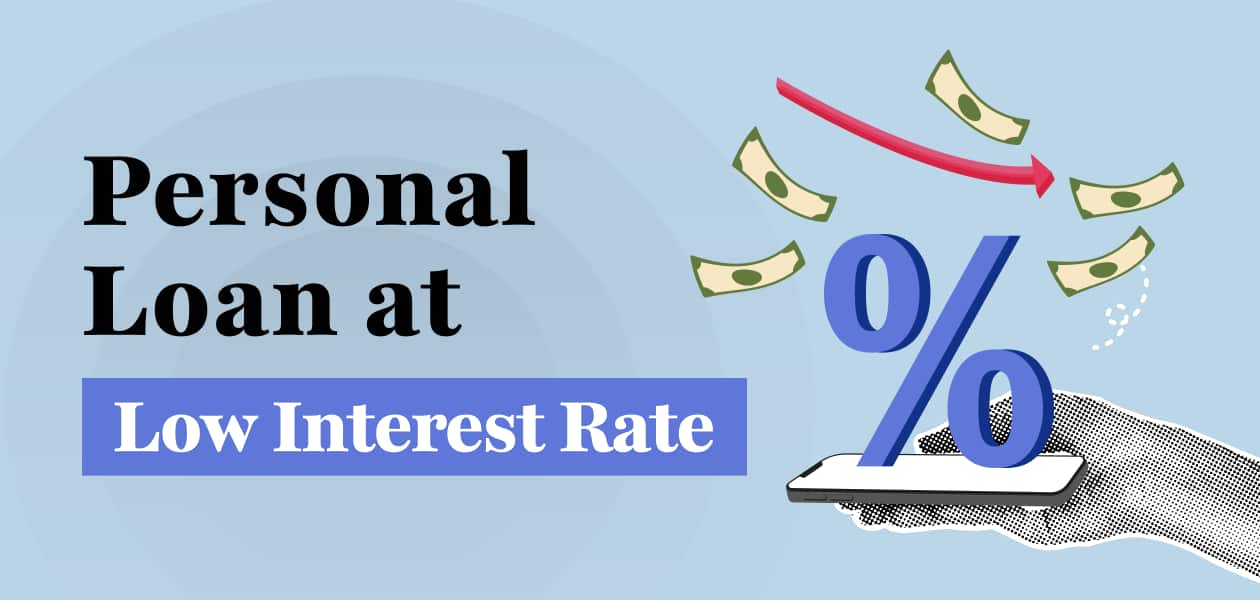TheFinQ.com is designed to be your one-stop destination for everything related to cards, loans, and investment products across India. We help you compare and choose the best financial products that suit your needs, including:

Taking a personal loan can be a great financial solution when you need funds for emergencies, home renovation, medical expenses, or other needs. However, the interest rate on a personal loan plays a crucial role in determining your repayment amount. If you manage to get a loan with a low-interest rate, you can save a significant amount of money in the long run.
Many people struggle with high-interest rates because they don’t know how to get the best deal from lenders. The good news is that with a few smart strategies, you can secure a personal loan at a much lower interest rate. Let’s explore some simple and effective ways to achieve this.
Your credit score is one of the biggest factors that determine the interest rate on a personal loan. A high credit score indicates that you are a responsible borrower, making lenders more likely to offer you a lower interest rate.
If your credit score is 750 or above, you can easily negotiate for a lower interest rate on a personal loan.
Never settle for the first loan offer you receive. Different banks and financial institutions have different interest rates and terms. Comparing multiple lenders helps you find the best deal.
Some lenders offer lower interest rates to their existing customers, so always check with your current bank before applying elsewhere.
The loan tenure you choose affects the interest rate. Generally, shorter loan tenures come with lower interest rates because lenders face less risk.
However, make sure that the EMI amount is affordable so that you don’t face financial stress.
Adding a co-applicant, such as a spouse or family member, can help you secure a lower interest rate. If the co-applicant has a strong credit profile, it reduces the lender’s risk, increasing the chances of a better loan deal.
Ensure that both applicants have a stable income and good credit scores to maximize benefits.
Your relationship with your bank can play a significant role in securing a low-interest rate on a personal loan. If you have been a loyal customer with a good transaction history, banks may offer you preferential rates.
Lenders trust long-term customers and may offer better loan terms to maintain their relationship with you.
Most personal loans are unsecured, meaning they do not require collateral. However, if you can provide security like a fixed deposit, property, or gold, you can avail of a secured personal loan at a much lower interest rate.
However, keep in mind that failure to repay a secured loan may result in the loss of your pledged asset.
Banks and financial institutions often offer special discounts on loan interest rates during festive seasons or promotional periods. These are the best times to apply for a personal loan at a lower rate.
Keep an eye on these offers and apply at the right time to get the best deal.
Many borrowers don’t realize that personal loan interest rates are negotiable. If you have a strong credit history and a stable income, you can directly negotiate with your lender for a better rate.
If you are an existing customer with a good banking record, your bank may agree to lower the interest rate upon request.
Applying for multiple loans within a short period can negatively impact your credit score. Every loan application results in a hard inquiry on your credit report, which may signal financial distress to lenders.
Being selective with your loan applications helps maintain a good credit score and increases the chances of securing a lower interest rate.
10. Check Eligibility Before Applying
Each lender has specific eligibility criteria for personal loans. Before applying, check the requirements to ensure that you qualify. Meeting the criteria increases the chances of getting a lower interest rate.
If you don’t meet the criteria, work on improving your financial profile before applying for a loan.
If you already have a personal loan with a high-interest rate, consider a balance transfer to another lender offering a lower rate. Many banks provide balance transfer options with reduced interest rates to attract new customers.
Before transferring your loan, check for any processing fees or charges that may apply.
Government banks and PSU (Public Sector Undertaking) banks usually offer lower interest rates on personal loans compared to private banks. If you meet their eligibility criteria, you can save money by opting for a PSU bank.
Although PSU banks may have a slightly longer processing time, they provide reliable and cost-effective loan options.